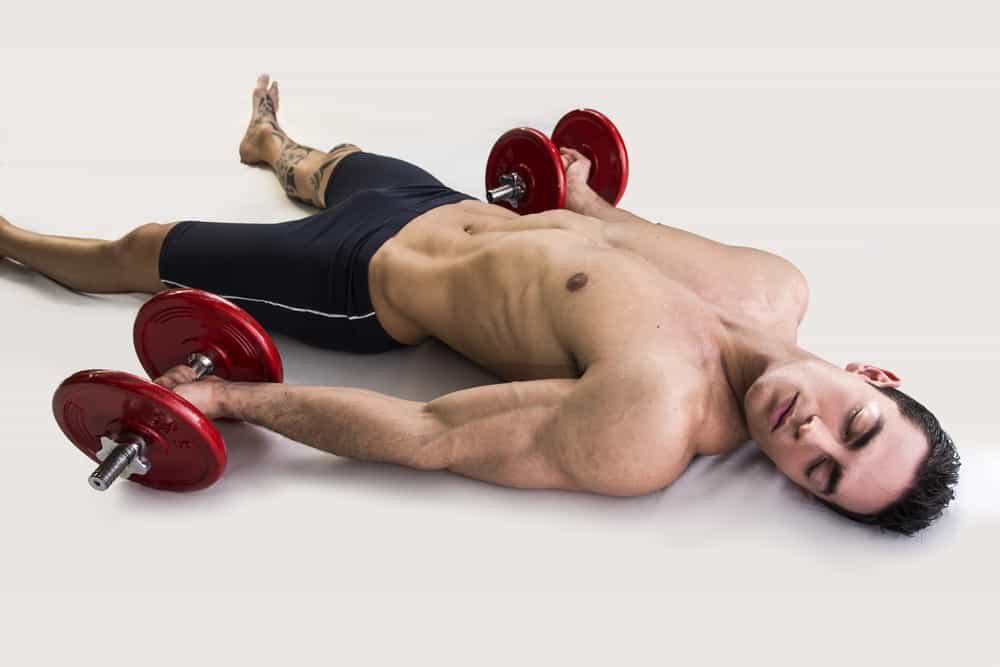Many think going to the gym every day of the week will increase our growth potential and allow us to see progress faster. In reality, it is quite the opposite. Overworking your body without properly resting will backfire.
Eight-time Mr. Olympia winner Lee Haney quoted, “Exercise to stimulate, not to annihilate.”
Rest days are a must. Think of them as growth days. If you work seven days a week, do you think it will increase your performance? Most certainly not, as your body and brain will require some time off. The same thing happens to our bodies when we train without rest days; we just increase the chance of burnout.
When you are on a fitness journey, you need to consider three things very seriously:
- Training
- Nutrition
- Resting
You can consider them as the three pillars of your fitness journey. If one of those is not in line, then the other will collapse because of it. From my personal experience, there is a higher tendency in beginners to focus on training overly and not pay much attention to nutrition and rest.
They believe if they push their body to its limit, then only they can achieve progress, which is not true. You even hear on social media that rest days are for weak people. I mean, if those are for weak people, then why do professional bodybuilders take off-seasons? Not only off-season, they also take rest days. Then, are professional athletes weak? They certainly are not; they do it because they know how important recovery is. So, do not follow everything you see on social media.
Contents
The importance of rest days
Rest days are considered growth days as they help you to recover from the hard training you did. When we do strength training, microscopic tears occur in our muscles. Our body gets stronger by healing those microscopic tears when resting and making the muscles stronger.
There are a lot of benefits of a rest day. Some of them are:
Decreasing the level of fatigue
When we train, not only our body but also our brain gets fatigued. Systematic fatigue usually occurs by continuously pushing the body without giving it ample rest. Another kind of fatigue is known as CNS fatigue (Central Nervous System), which is the fatigue of our brain. When you do not take rest days, there is a high chance that you will quickly hit systematic and CNS fatigue.
Rest days are like holidays for your body, during which it recovers from the fatigue generated throughout the week. They kind of work as a restart button for our bodies. They give your body enough time to balance out hormones and also repair the body so that the fatigue level decreases.

Reduce the chance of injury
In almost every sport, there are some chances of injury. When you over-train, there is a high probability of injury. If you are familiar with weight training, you know that the first set of any exercise is the easiest as your muscles are fresh at the time, and the last set or reps are the hardest to perform.
Think about it in a broader spectrum. If you train without rest days, the muscles do not get enough time to repair themselves, so you do not start the exercise with a fresh, healed muscle. When you try to push that overworked muscle further, the chance of getting an injury skyrockets.
On rest days, your muscles get ample time to heal themselves and become stronger than before. So, when you do progressive overload, the chances of injury are reduced to a greater extent.
Helps in breaking the plateau
One of the main reasons for hitting the lifting plateau is muscles are not adequately healed or you have a terrible diet. Some people train every day, and at some point, they see that they cannot make any progress. It is quite frustrating as everyone wants results if they put in the work. Many start thinking that they have hit their limit and cannot progress further, which is not correct.
World Strongest Man Eddie Hall once stated that he had hit a plateau for deadlifting. He had a max PR of 420 KG and had been stuck at that for over two years. After doing research, he found out that he was not able to make any progress because he did not give his body enough rest. After fixing the recovery issue, he was able to break the plateau.
This will help you understand how important rest days can be. They are a part of your training; they are not slacking off.
Sustenance
When you first start working out, your motivation is at its peak. Over time, it decreases, and almost after two or three months, most of us hit a threshold.
Rest days help us recover from the threshold and balance out our motivation so that we can sustain our fitness journey. If you keep grinding without proper rest and recovery, your brain will demotivate you after a certain time. You will face burnout, and eventually, you will quit.
When I started working out, I was doing 6 days of weight training plus cardio, and I was not resting on the rest days. Instead, I increased the duration of cardio exercise. I kept on doing that for over 3 months and eventually felt terrible at some point. Then, I talked with my mentor and asked what I should do, as I lacked the motivation to continue working out. He suggested I reduce the workout volume as I was overtraining. He told me to include a moderate level of cardio in my working days and not do any intense level activity on the rest days. After following the advice for over two weeks, I felt much better.
Performance Boost
Do you think your performance will improve when you lack motivation and are constantly tired because you did not recover from the last session?
Rest days increase exercise performance as you focus more and your muscles are ready before the workout.
You can quickly push your limit as your muscles will be much fresher due to proper rest.

How Many Rest Days Should You Take?
You are the only person who can provide an accurate answer to this question. There is no one answer that fits everyone.
You should take at least one day off. For me, one day is not enough for my recovery, so I take two days off from the gym. When I first started, I took only one day off. When I got a job, I felt it was stressful for me to go to the gym six days a week, so I adjusted my schedule and started taking two rest days a week.
Based on different specifications, your rest days may vary. I have written an article in which you will find the variables you need to consider and how many days you need to train. “HOW MANY DAYS SHOULD YOU WORK OUT”

